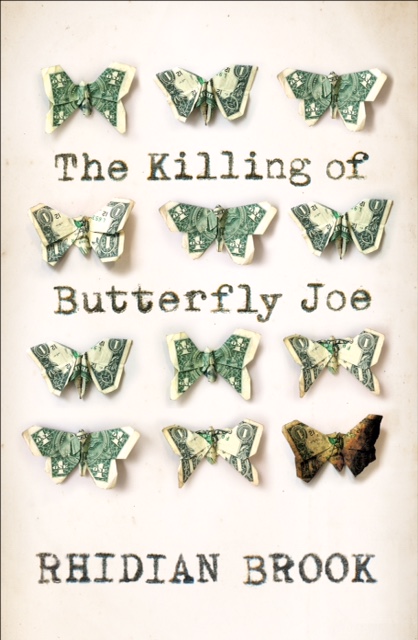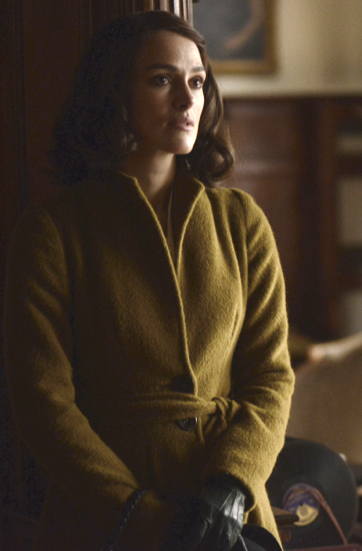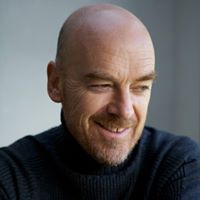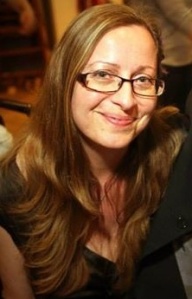You may remember that I had a review for The Killing of Butterfly Joe last month. You can read my review here. Well, today it’s published so happy publication day to Rhidian Brook! To celebrate, I have a Q&A with Rhidian.

So Rhidian, where did the inspiration for The Killing of Butterfly Joe come from?
When I was 23 I had a job selling butterflies in glass cases in America. I worked for a guy who, as well as being a butterfly salesman, wanted to be America’s first Pope (an ambition he ditched on account of him wanting to marry). I drove all over the US, and ended up selling in 32 states. It was 1987, pre-internet, pre-mobile phone. I had a real sense of being in a land far, far away. At the time I was not a writer, but I told myself that if I ever was I would write about my butterflying days. It was nearly my first novel but ended up being my fourth. But I think the distance on the experience enabled me to create my own confabulation from the experience.
I’ve likened Joe to an Old Testament prophet in his zeal for speaking his mind to Christians. Was this something you planned for him as a character or did it come about naturally as you wrote him?
I had in mind a character who had a strong faith but who was not religious. Someone who was an iconoclast – in the true sense. A knocker downer of idols, an exposer of religious indulgence and indifference. So, yes, I think Joe is a bit of an Elijah – albeit a cheerier one. America at that time was awash with TV evangelists and they had a reputation for greed and corruption. But Joe is as much a salesman and scientist as he is a saint. And he’s a spinner of plates. The two literary figures that mainly informed his creation are probably The Cat In The Hat and Zorba (The Greek). Untameable, creative/destructive charismatic mavericks who sweep you along into whatever crazy scheme they’re cooking.
I love the poetry element to this book and the ballad feel it created. How did you get the idea for that?
It came early in the writing. Originally I had the idea that Llew was a travel writer, writing a guide book; but this was problematic in terms of what I wanted to do. I liked the idea of a book within a book and thought that perhaps the poems would add to the meta-element of this book being a written confession. A way of Llew expressing another layer of what he had experienced. It’s risky writing poetry for a novel; but I felt it was true to Llew’s sense of himself as a writer.
You’ve been involved in a wide range of writing – novels, non-fiction, documentary maker, TV script writer and film script writer – do you have a favourite?
The novel. It is the form in which you have the most freedom and the most artistic control. It’s also the most hairy, the most mentally taxing, and requires serious endurance. Scripts are essentially sets of instructions for others to interpret. The instructions need to work, of course; but others are going to bring their talents to bear on things. The collaborative element of film is (generally) a good thing. After a long stint in an office writing 100,000 words without much interaction or feedback or sense of anyone being out there, a script meeting seems like a party. Plus, in film everyone has an opinion about the script. Feedback is a major part of the rewriting process. If I only wrote scripts, I’d learn to direct; for cinema is still a director’s medium. TV is a bit more weighted to the writer and with the public appetite for long form TV, writers who are used to creating a rich narrative and complex world can really thrive in that medium. But there’s nothing like the high wire of starting a sentence. Adding another. And then another. And keeping it going for as long as you can get away with it.
Your last book, The Aftermath has just been made into a film. You’ve seen your work on screen before but as the story is loosely based on your grandfather’s experience in Germany after WW2, did it feel different this time seeing your story come to life?

It’s magical when you turn up on set and see an actor’s trailer, or several cameramen, or two catering crews and realise that all this stuff is here because a few years before you sat in a room and wrote a story that took you months and years, and that might never have seen the light of day let alone the lights of a film set. To give employ to so many! Yes! My job isn’t useless! The Testimony of Taliesin Jones was made into a film in 1999 and had a wonderful cast. There were so many thrilling moments in that process, not least having Ian Bannen and Jonathan Pryce ask me about the inspiration for their characters. The Aftermath is on a bigger scale and as I was this time a co-writer on the script I had a more intimate involvement with it. Going out to the shoots in Prague and Hamburg with my wife and then with the wider family including my Dad (who’s own father inspired the events that inspired the story) really was quite something. Seeing Keira Knighely on set (effectively playing my Gran) and then my Dad chatting to the actor (Jason Clarke) playing ‘his Dad’ was all quite exceptional. I have yet to see the finished film. But the early cut suggests it will be very intense, very moving, very beautiful and that Keira Knightley has maybe delivered one of the best performances of her life.
Are there any plans for The Killing of Butterfly Joe to be made into a film? Do you have a dream cast?
Yes. But I must be careful not to say too much. Not from superstition, but because I want the book to have its own life first. I have never (despite some critics inferring it) written a novel as a kind of pitch to a film maker. A book can do things a film can’t (or not without difficulty). Not least, explore the interior life of its characters. My first book (about a boy who believes God’s healed his warts) was not obviously a movie but someone had a vision for it. I think I just write in a particularly visual way and have a love of classic 3 act/5 act structure (which script writing really helps hone). The Killing of Butterfly Joe really will make a wonderful film if we can get all the pieces of the jigsaw right, starting with Director and Script. My current cast line up would be: Aneurin Barnard for Llew; Garrett Hedlund for Joe, Meryl Streep for Edith, Tara Lee for Mary, Eve Hewson for Isabelle and Bryan Cranston/Jeff Bridges for Shelby. But more important than any of these is the director. And for that I must keep my powder dry! (you see: I have thought about it!)
Thanks so much for answering my questions. I can definitely see Aneurin Barnard as Llew! And I’m definitely looking forward to seeing The Aftermath at the cinema
The Killing of Butterfly Joe is published today by Picador and can be bought here.
The author

Rhidian Brook is an award-winning writer of fiction. His first novel, The Testimony of Taliesin Jones, won several prizes including the Somerset Maugham Award. His third, The Aftermath, was an international bestseller and has been translated into twenty-five languages; it has also been made inti a major motion picture. He has written for television and the screen and is a regular contributor to BBC Radio 4’s ‘Thought for the Day’. He once had a job selling butterflies in glass cases.
